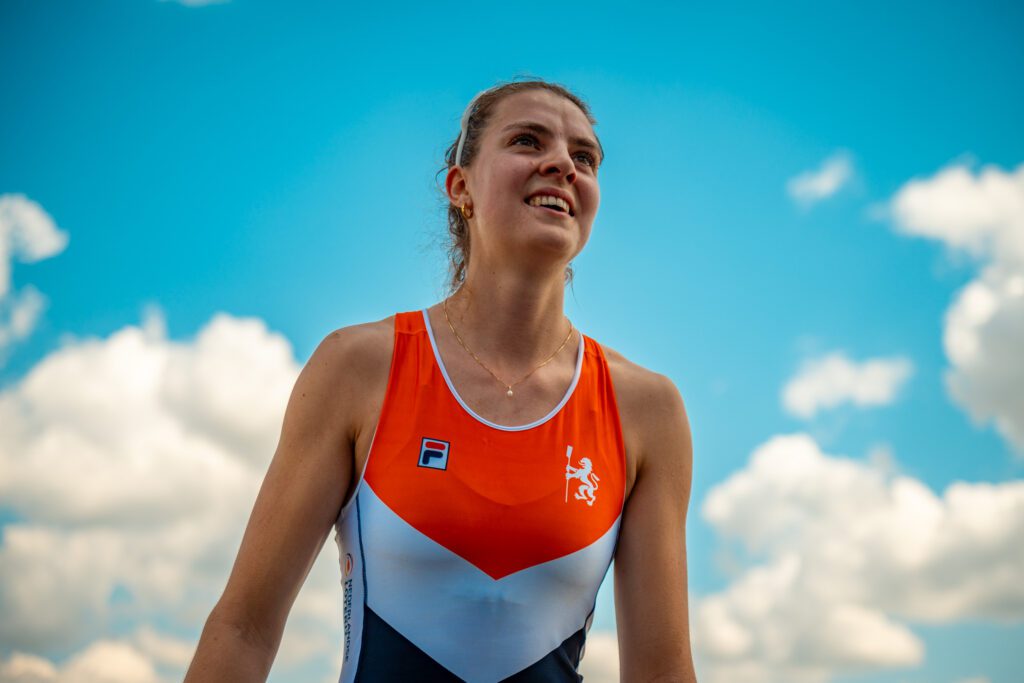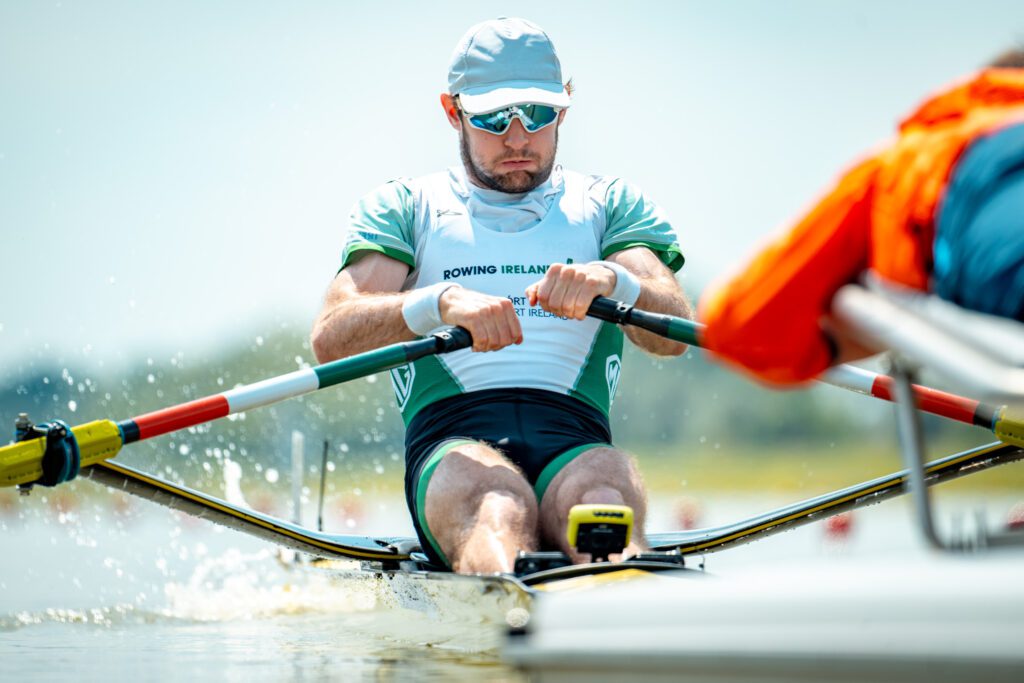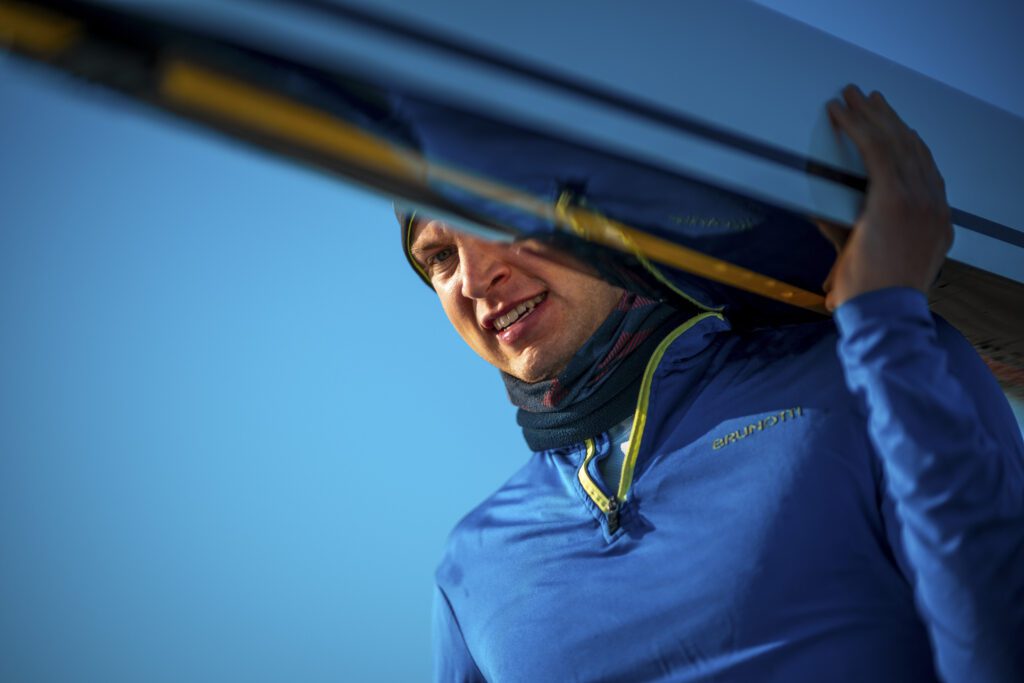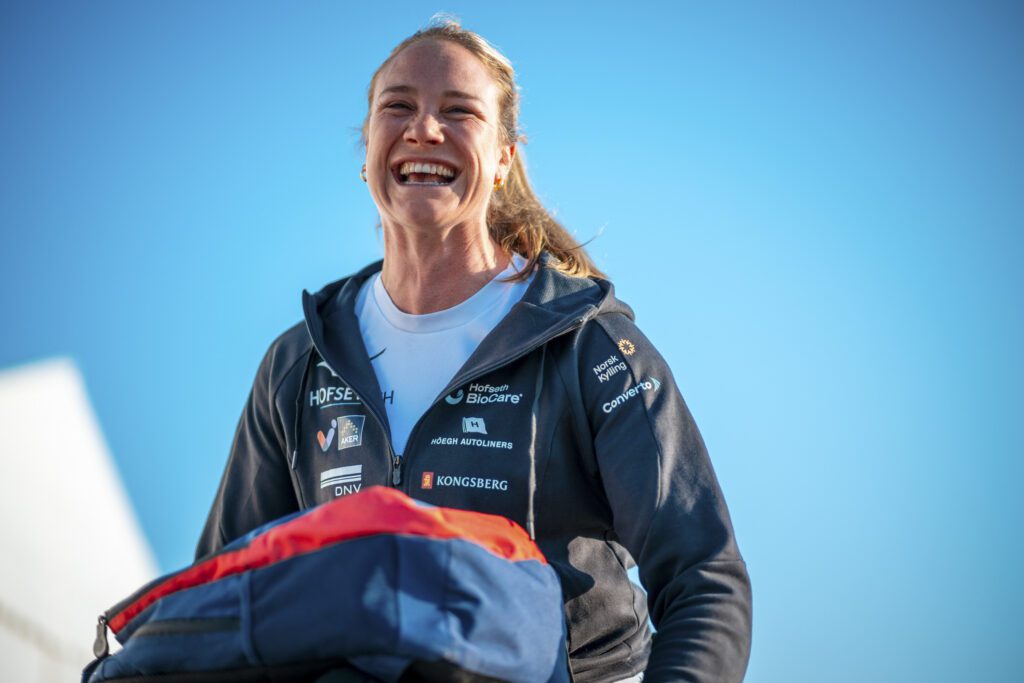Day four of the 2023 championships and the warm-up and spinning zones, always dangerous places, took a few new victims. The Danish men’s pair had damage to their boat during circulation which delayed their race by over half an hour, there were several near-misses, a rigger was broken and somehow the GBR LW2x ended up with the bow of their double speared a foot through the stern canvas of the Romanian W4- shell during training, though neither sank. Later on during racing there were more dramas at the finish line but before that there were weather woes.
Everyone agrees that rowing is an outdoor sport with inconsistent conditions, but when 2024 qualification and medals are on the line, teams can no longer stay entirely objective about weather, particularly wind. Which turned up in spades on Wednesday, a cross-head rising steadily in power and sliding round to full — and quite strong — headwind from noon onwards, just in time to put the brakes on the lightweight quarter-finals. It made racing very tough going, if the presence of rivals going full throttle weren’t enough.
Later on it slid a few degrees further for E/F/G/H races, ending up slightly cross from the side of the higher-numbered lanes. World Rowing’s fairness commission did its bit, changing the standard lane draw (earlier winners in the middle) to echelon (earlier winners in the most sheltered side lanes) but the optics of a strung-out race are never good and reinforce the sense of unfairness even if as promised, World Rowing is favouring those who went fast early in the week. The grumbles have begun and athlete lane selection, still under consideration, has been put on the back burner for the pre/Olympic year while the World Rowing working group tries to see if a system can be designed which allows selection up at the start rather than before boating.
Meanwhile the scullers with stabilisers — aka PR1 singles — were fine, having the benefit both of their safety floats to discourage their boats from tipping, and also the flattest water of the day before the wind became nasty. There were no major surprises in the six PR1 singles repechages, meaning that the PR1 women’s singles final is now full of the usual suspects, while their male counterparts head for a brutal semi-final draw in which quite a few could be vying for the important third place. They were followed by PR2 and PR3 mixed doubles, who also completed their finals draws in four superb repechages where those who finished just outside the top two — particularly Israel’s PR2 double — were very unlucky. The para-doubles fields are intensifying impressively: a long cry from the early days when the medals were virtually won before the regatta started.
They were the only crews clinching Paris places straight away, but dozens of crews missed their step and fell off the medal pathway, particularly in the brutal quarter-finals that six events are having to wade through. These relegate anyone finishing fourth or lower to the E/F/G/H semi-finals, a death-blow to any Olympic hopes this season. This fate was suffered by several previous A-finalists, including Canada’s Trevor Jones (from the race won smoothly by Stefanos Ntouskos), and Norwegian Kjetil Borch (in the race won by reigning champion Olli Zeidler), but at least former quads megastar Damir Martin did qualify third in his race.
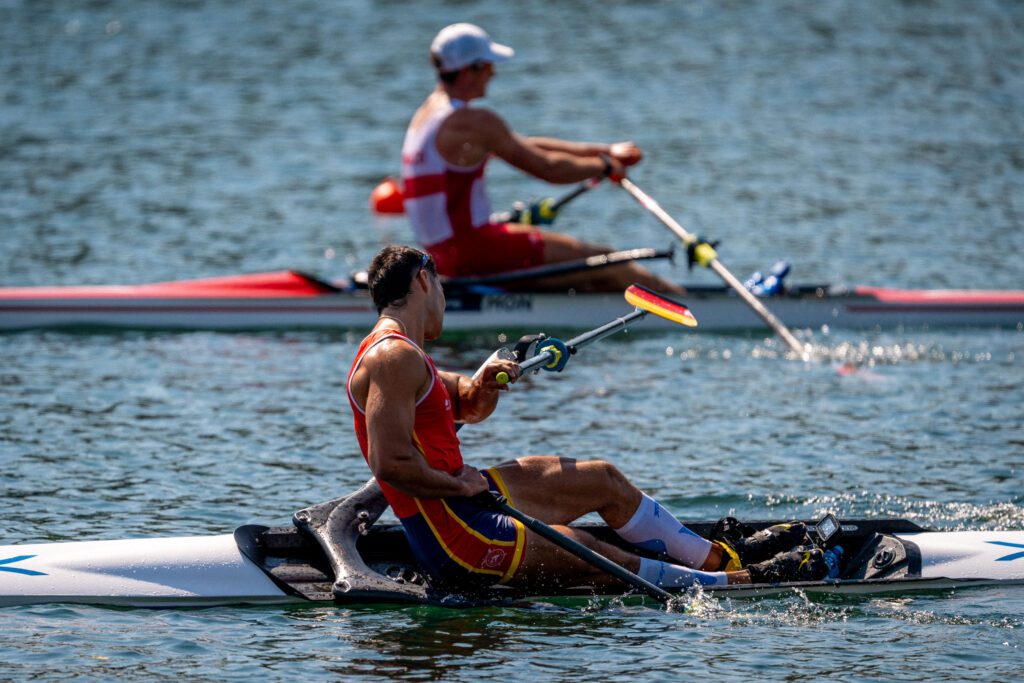
Photo Spain’s Gonzalo Garcia Ferrera exhausted after missing a top three finish on Wednesday
Credit Benedict Tufnell
Meanwhile Spain’s Gonzalo Garcia Ferrera stopped just before the line in frustration at being outside the top three and Nikolaj Pimenov will have made his famous father and adopted Serbian national team very proud by qualifying for the A/B semis only three seconds behind Ntouskos. The stand-out quarter-final winner was Simon van Dorp, the newest super-sculler from the Dutch stable, who has veered between the eight and quad during the last two years and is now making his international debut in the single, possibly as a result of having been selected out of the quad. He set the quickest quarterfinal time which is going to put a lively cat amongst the sculling pigeons and now has a centre lane against, amongst others, the languid Sverri Nielsen (DEN) and the ever-surprising Ryuto Arakawa (JPN).
The shock in the women’s singles was Tokyo silver medallist Anna Prakaten (UZB) failing to make the grade, blown out of any claim on third place as Alexandra Foester (GER) turned the tables on her, rowing away just as Prakaten had done to other scullers two years ago. This was in the first quarter-final, headed by Emma Twigg (NZL) while the other victories went to Tara Rigney (AUS), Kara Kohler (USA) and the ineffable Karolien Florijn (NED).
Aurelia-Maxima Janzen (SUI) qualified using her habitual macon blades and Magdalena Lobnig (AUT) was in particularly good form coming back into the single after disappointment last year in Racice sent her into the doubles for the early 2023 season. Rigney had to fend off a big attack from Bulgaria’s Angelova Desislava and individual neutral athlete Tatsiana Klimovich, who egged one another on to close up to her in the final sprint. In the last race Chinese sculler Ruiqi Liu pretty much gave up when she heard what she thought was her finish line-crossing beep, only to realise that it had been for the three ahead of her, and that she’s heading for places 13-24. The same happened later in the men’s doubles, when Cuba’s bowman stopped early, mistaking which beep was for his crew. Fortunately placings weren’t affected in either race.
Despite having to battle the rising wind as well, the lightweight quarterfinals were superb, a near-photofinish shutting out under-23 medallist Rasmus Lind (DEN) in one singles race, and tight 3rd/4th results in two of the four lightweight men’s doubles. Uruguay’s strokeman was so shattered at the end after coming fourth behind the Norwegian, German and New Zealand LM2x that he had to be pulled out of the boat by the medics, leaving his hapless bowman wobbling in a double with four oars and having to get it back to the raft, impeded by well-meaning but clumsy volunteer help. With a packed semi-final day and three finals days to go, the drama is far from over.
